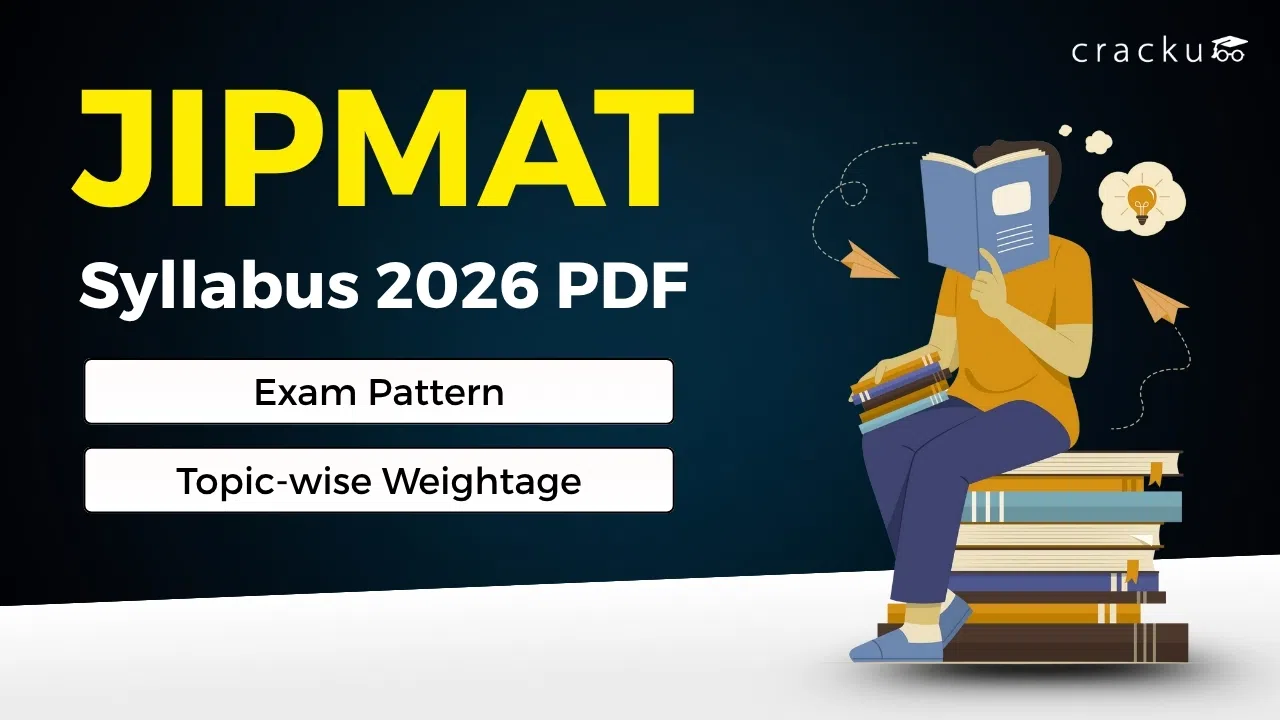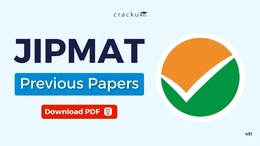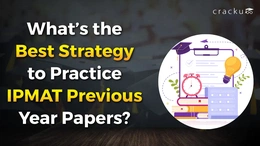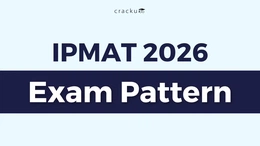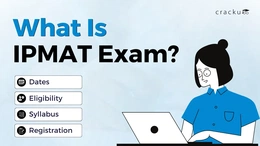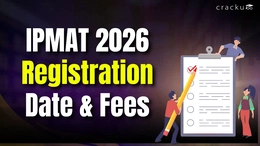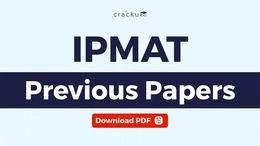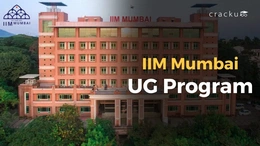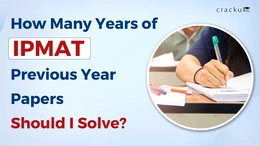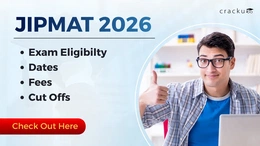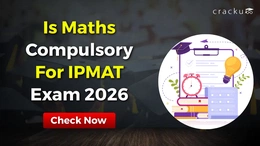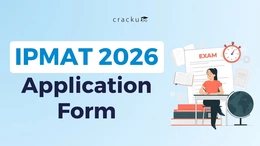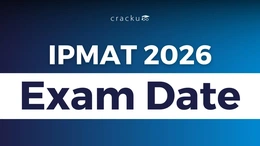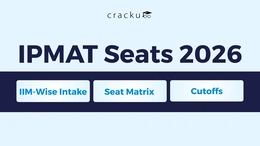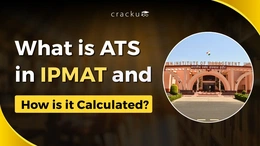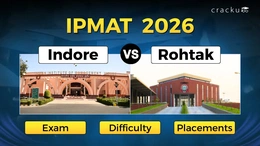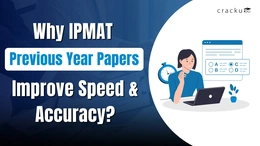JIPMAT Syllabus 2026
The Joint Integrated Programme in Management Admission Test (JIPMAT) 2026 is one of the most awaited management entrance exams for students looking forward to a five-year Integrated Programme in Management (IPM) course at premium institutions like IIM Bodh Gaya and IIM Jammu. It is important to know the JIPMAT syllabus 2026 so that candidates can prepare effectively for the exam.
In this article, the JIPMAT Syllabus 2026 will be discussed through a section-wise breakdown, topic-wise weightage, exam pattern, and a preparation strategy for candidates to perform well in the exam.
JIPMAT 2026 Syllabus PDF
The candidates who are aspiring for JIPMAT 2026 must be aware of its syllabus. The JIPMAT Syllabus is designed by NTA after consulting with IIM Bodh Gaya and IIM Jammu. Those who have not yet downloaded the JIPMAT 2026 Syllabus PDF can click on the link below for the latest PDF released by NTA. The JIPMAT comprises three sections, namely Quantitative Aptitude, Data Interpretation and Logical Reasoning, Verbal Ability, and Reading Comprehension.
What is the JIPMAT Syllabus 2026?
JIPMAT Syllabus is released by the National Testing Agency (NTA) for which the application forms are filled online. Three types of programmes can be enrolled through the JIPMAT exam, including MBA, PhD program in Management, and Integrated Program in Management (IPM). JIPMAT Syllabus 2025 is the way for all the aspirants who are preparing for such a competitive exam and pursuing IPM.
JIPMAT Section-Wise Syllabus
It is anticipated that the JIPMAT 2026 syllabus will be similar to previous years, emphasizing language proficiency, logical reasoning, and quantitative and analytical skills. With the JIPMAT Section-wise Syllabus, aspirants can prepare for the exam according to their weaknesses and strengths.
Quantitative Aptitude (QA)
The QA section is not very challenging, but it is time-consuming. The candidates need to practice a lot to perform well in quant. If a candidate has practiced well and knows the short tricks to solve the lengthy question, he or she performs well. Here are some of the topics relevant to the quantitative aptitude syllabus.
- Number Systems
- Equations
- Polynomials
- Progressions
- Percentages
- Profit and Loss
- Ratio and Proportion
- Time and Work
- Time Speed Distance
- Geometry
- Mensuration
- Permutation Combination
- Probability
- Set Theory
- Functions and Graphs
Data Interpretation and Logical Reasoning (DILR)
The questions from data interpretation have a paragraph with some information, and then related questions are asked. A candidate needs to be good at inferring things to score well in this section. Then comes the logical reasoning section. In this, you have to practice different types of questions, especially seating arrangement, for a better score.
Logical Reasoning
For Logical Reasoning, my recommendation is to solve the easy questions and then move on to the difficult questions. Solve 3 to 5 LR sets every day. Like I stated above, we can do 3 to 5 sets a day on different topics each day. Again, we should do all the past Actual JIPMAT Mocks for preparation, and so that you get a feel of the kinds of questions being asked. And to have regular mocks – so that you stay aware of your preparation level.
- Blood Relations
- Coding-Decoding
- Clocks
- Calendar
- Arrangements
- Puzzles
Data Interpretation
For Data Interpretation, work on your mental calculations so that you don't have to waste time on calculations. Solve at least 2 to 3 sets a day. Learn to observe patterns in the data. Rounding/numbers might also help with faster calculations.
- Bar Graphs
- Pie Charts
- Line Graphs
- Tables
- Caselets
Verbal Ability and Reading Comprehension (VARC)
The Verbal Ability and Reading Comprehension (VARC) section of JIPMAT 2026 examines a candidate’s command over the English language and reading comprehension skills. This mostly consists of grammar, vocabulary, sentence correction, para jumbles, reading comprehension passages, and critical reasoning. First of all, one needs to work on their reading speed, accuracy, and contextual reading and understanding of the passages. Time management and elimination techniques can do wonders for the aspirants.
- Analogy
- Statement-Conclusion
- Cause-Effect
- Statement-Assumptions
- Connectors
- Grammar - Spotting Errors, Sentence Correction
- Fill-in-the-Blanks
- Sentence Re-arrangement
- Reading Comprehension - Long and short passages with inferential questions
- Vocabulary - Synonyms, Antonyms, one-word substitution
Also Take, Free JIPMAT Mock Test
JIPMAT Topic-Wise Weightage
The JIPMAT topic-wise weightage is distributed across three major categories, viz., Quantitative Aptitude, Data Interpretation & Logical Reasoning, and Verbal Ability & Reading Comprehension. In most situations, Quantitative Aptitude has the highest weightage, then Reasoning, and lastly Verbal.
Section | Topics | Expected Weightage (Approx. No. of Questions) |
Quantitative Aptitude | Arithmetic (Percentages, Ratio, Averages, Profit & Loss, SI & CI, Time-Speed-Distance, Time & Work) | 10–12 |
Algebra (Equations, Progressions, Inequalities, Functions) | 6–7 | |
Geometry & Mensuration | 3–4 | |
Number System | 2–3 | |
Modern Math (Permutation & Combination, Probability, Set Theory) | 3–4 | |
Data Interpretation (Tables, Charts, Graphs) | 4–5 | |
Logical Reasoning & Data Interpretation | Puzzles & Seating Arrangement | 4–5 |
Coding-Decoding, Series, Analogies | 4–5 | |
Syllogism, Blood Relations, Direction Sense | 4–5 | |
Logical Deductions, Critical Reasoning | 3–4 | |
Data Interpretation (Caselets, Bar Graphs, Line Graphs, Pie Charts) | 5–6 | |
Verbal Ability & Reading Comprehension | Reading Comprehension (2–3 passages, fact-based & inference-based) | 8–10 |
Vocabulary (Synonyms, Antonyms, Fill in the Blanks, Word Usage) | 4–5 | |
Grammar (Error Spotting, Sentence Correction, Phrase Replacement) | 4–5 | |
Para Jumbles & Completion | 3–4 | |
Cloze Test | 3–4 |
Also Read, What is IPMAT Exam? Important Dates, Syllabus, Eigibility
JIPMAT Exam Pattern 2026
The JIPMAT 2026 exam comprises multiple-choice questions, with a total of 100 questions, each carrying 4 marks, totaling 400 marks. For every incorrect response, 1 mark is deducted, and 4 marks are awarded. There is no negative marking for questions left unattempted. The exam is conducted in English only. The duration of the exam is 150 minutes, which is 2 hours and 30 minutes.
Type of Questions (MCQ) | Total No. of Questions | Marks per question | Total Marks |
Quantitative Aptitude | 33 | 4 | 132 |
Data Interpretation and Logical Reasoning | 33 | 4 | 132 |
Verbal Ability and Reading Comprehension | 34 | 4 | 136 |
Total | 100 | 400 |
Also Read, JIPMAT Previous Year Question Papers PDF, Download Now
JIPMAT Preparation Strategy 2026
If you have a strong preparation strategy, you should have a better chance of scoring well on JIPMAT 2026. Here's how you can make the most of your time before the exam:
1. Start Early (Students in Class 11 & 12) - Keep revising the NCERT syllabi for Mathematics. Get into the habit of reading newspapers, magazines and novels. Continue solving logical puzzles.
2. Subject-wise Preparation - Quantitative Aptitude: At least 20–30 maths questions daily. It is advisable to spend more time on arithmetic and algebra.
- DILR: At least 2-3 sets of DI and 2-3 sets of reasoning puzzles daily. Note the timing to increase speed.
- VARC: Read editorials from national newspapers and edit your own comprehension passages, and instrumentally revise the rules of grammar.
3. Mock Tests and Previous Papers - Take a mock test every Sunday, beginning November 2025 or so, onwards. After every mock test, meticulously print out the performance radar and warmly analyze your mistakes.
4. Coaching Classes vs. Online Execution - If you need mentoring, find an IPMAT/JIPMAT coaching class. Online, there are many free practicing quizzes provided for every subject on infinite platforms.
5. Attempting the Exam - Start with the simplest section (your strengths). No 'toying' around, especially considering negative marking. Split the 150 minutes as:
- QA – 55 minutes
- DILR – 50 minutes
- VARC – 45 minutes
JIPMAT Syllabus 2026: Conclusion
The JIPMAT syllabus 2026 will be set to assess quantitative ability, logical reasoning, and verbal ability in an even manner. Students who will have a planned approach, a foundational understanding, and practice will have no issue performing well. By identifying topics section-wise, identifying weightage and patterns, aspirants will make the relevant preparation to increase their chances of scoring.
Having the syllabus PDF available for reference, focusing on mock tests, and a strong foundation will go a long way in cracking JIPMAT 2026.
